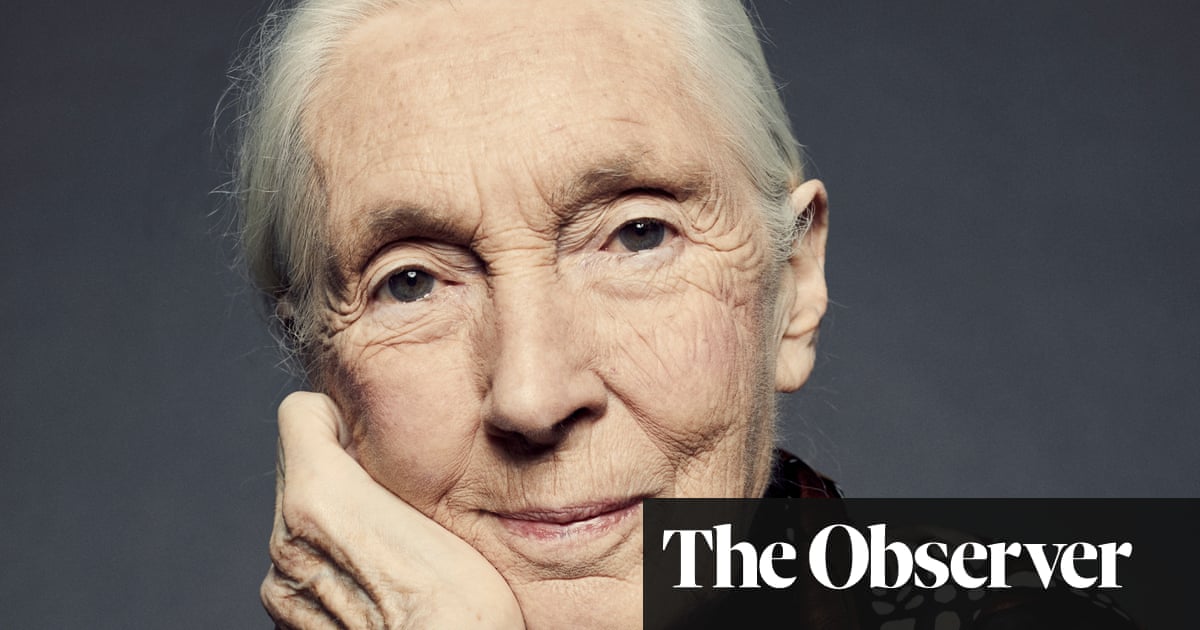
he Oscars were an ordeal for Sufjan Stevens. “Honestly, one of the most traumatising experiences of my entire life,” the songwriter half-laughs, half-groans. The event was, he says, “a horrifying Scientology end-of-year prom” representative of “everything I hate about America and popular culture”.
He had never paid much attention to them before being nominated in 2018. Mystery of Love – his bittersweet folk ballad, written for Luca Guadagnino’s Call Me By Your Name – was up for best original song and Stevens had been invited to perform. His devoted fans celebrated this appearance as a moment of long-overdue mainstream recognition for the spotlight-shy then-42-year-old; 26 million viewers were watching at home, after all. But for the artist himself, shrinking into his pink-and-black striped blazer as Hollywood A-listers schmoozed around him, there was not much to celebrate. “I didn’t want to have anything to do with that world and that culture,” he says. “I don’t want to be part of any room full of adults hemming and hawing over plastic trophies.”
Stevens has spent his career adjusting his work to help avoid such rooms. The Detroit-born composer is an indie household name, with St Vincent, Moses Sumney (both of whom joined him onstage at the Oscars) and the National among his peers. He has fans in hip-hop, too: Kendrick Lamar and Mac Miller have both sampled him, while in 2011, Donald Glover proclaimed himself “the only black kid at the Sufjan concert” in a verse from Fire Fly telegraphing his sensitivity.
But every time Stevens has edged too close to the precipice of mainstream success, he has reacted by releasing something challenging or fogged in darkness. After his 2003 breakthrough Michigan, full of bouncy chamber-pop, came an album of sparse folk meditations (2004’s Seven Swans) themed to his Christian faith. When 2005’s Illinois topped many publications’ album-of-the-year lists, propelled by its anthemic single Chicago, he swerved again, releasing an avant-garde multimedia work about a graffiti-splattered highway (2009’s The BQE) and a paranoid electronic opera (2010’s The Age of Adz). “It’s never a rebellious thing; I’m always just ready to do something new,” he says cheerily, sporting a salt-and-pepper beard of late, but with the same boyish, scout-leader good looks he emerged with for his woodsy, self-recorded 1999 debut A Sun Came. “I don’t need to be famous or sell millions of records. There’s never a conversation with myself about how I’m advancing my profile.”
Stevens’s latest and perhaps boldest work, The Ascension, is another exercise in changing direction after a brief flirtation with fame. His 2015 album Carrie and Lowell was a bare-bones exploration of grief, inspired by the death of his mother, and hailed as Stevens’s greatest achievement yet. Rather than more of the same, its follow-up is a beautiful, scuffed electropop album that swaps Carrie and Lowell’s introspection for outward-looking lyrics, grappling with an American culture he perceives as up in flames. “I wanted to respond to changes in the political climate and changes in human engagement, influenced by the internet and technology,” he says.
On The Ascension’s lead single, America – pointedly released on Independence Day – Stevens sings solemnly: “I’m ashamed to admit I no longer believe.” It is a far cry from the artist who once famously planned to write an album about every state in America – an intention later abandoned and written off as a joke. It was believable at the time because his songs frequently resembled celebrations of Americana, constantly invoking its landmarks and former leaders. Since then, his patriotism has become complicated by the advent of “Donald Duck”, as he occasionally calls the current occupant of the Oval Office. “Christ would be ashamed of us all,” he wrote on Tumblr in 2017, after Trump signed an executive order banning people from seven Muslim-majority countries from entering the US. “America, there really is no such thing as an illegal immigrant,” the letter continued. “We are all immigrants and refugees in a wildly changing world, dominated by superfluous boundaries built by blood and war.”
Today, his frustration is even greater, and his perspective somewhat broader: Trump is “a symptom, not the problem” whose presidency is evidence of a deep, foundational rot, he rages. “Remember that ridiculous Hillary Clinton memoir that came out after she lost the [2016 election] race? It was called What Happened. What happened? Shit happened! For centuries and centuries, people were forcibly removed from one continent and shipped to another, where they were forced into free labour, for 400 years!”
He is not sure of the answers: “I’m not a politician or a civil servant or a scientist, I’m just a songwriter.” He is also unsure of how optimistic to be as November’s crucial presidential election approaches: “What gives me hope? Oh God. Diazepam! Lithium!” But Stevens is certain that a Biden win “won’t solve America’s problems alone”, and that the nation’s ills, from police brutality to institutional racism, first require some uncomfortable conversations. “It’s difficult,” he says. “This is many generations’ worth of questions and answers that have stacked up. But we need to show up and do the work.”
That desire is writ large across Stevens’s recent output. In June 2019, the songwriter released Love Yourself, an EP of songs about “love without conflict, anxiety or self-deprecation” to mark 2019’s Pride month, after decades of what has been interpreted as queer subtext in his songs. On Seven Swans’ To Be Alone With You, Stevens detailed a man who “gave up a wife and family … to be alone with me”. A year later on the Illinois song The Predatory Wasp of the Palisades is Out to Get Us!, his narrator sang of a swim in a lake with a male friend, ending in a gay embrace.
Now 45, Stevens has declined ever to discuss his romantic life publicly, nor this theme in his work, and it is possible these references are non-autobiographical. Regardless, he has amassed a large LGBTQ+ fanbase who celebrated that EP as his most pronounced acknowledgement of gay rights yet, at a time when those rights have been brought dangerously under threat.
It is this troubled state of the world – coupled with a sense of “having exorcised all my personal grief” on Carrie and Lowell – that has given Stevens this new outlook. “I have a sense of urgency I don’t know I had before,” he says, pointing to The Ascension’s heavy use of declarations and imperatives. Where previously his lyrics were abstract and poetic, his new album is threaded with demands: “Run away with me”; “Make me an offer I cannot refuse”; “Don’t do to me what you did to America”.
There is a line in America that feels especially poignant. “I have traded my life for a picture of the scenery,” he sings through sorrow, as if repenting for his previous positive mythologising of the US; he claims to feel “disassociated” from his old music today. Does he feel he painted postcards of the US on those tracks, ignoring the darkness? A long sigh floats down the phone line. “Experience makes fools of us all,” he says. “In experiencing so much and growing older, I’ve realised there was definitely a naivety to my former self. There was a hopefulness, joyfulness and playfulness to a lot of those early records that’s been slowly receding over the years. It’s hard for me to speak for it because it’s happened so gradually, like watching a tree grow. But you start to lose faith in the structures of society as you get older, and I think that’s coming to the surface now.”
A picture-postcard America nevertheless played a big part in the actual making of The Ascension. Stevens is today sequestered in the mountains upstate from New York, having moved here 18 months ago after 20 years in the city. “I’ve been coming up here to think and work for the last decade,” he says. “Making the permanent move was a total transformation of my life, my mental health and perspective. I think deep down I’m more of a naturalist. My soul belongs in the wilderness.”
Stevens spent a lot of time in nature as a kid: although he was born in the city, he spent much of his childhood in rural north Michigan, where his “hippy, eccentric” father and stepmother did their best to shield Stevens and his six siblings from what he has described previously as constant looming “domestic and financial disaster”. During these years, the outdoors often beckoned. “It made creating a life in New York when I was older actually quite hard,” he says. “I had to learn to be an urban dweller. It was unnatural to me.”
He relocated last year, but the uprooting began in 2016 after touring Carrie and Lowell. Kicked out of his Brooklyn studio “for various shitty landlord reasons”, he could only access a drum machine and computer after putting his belongings in storage. “That’s why the nature of this record is so simple: I could only use things I could plug into a computer. My mind was not really in the folk idiom any more. I’d packed my guitars in the storage and I think mentally I’d packed away that aesthetic, too.”
He does not know whether it was the instruments that led him to the socio-political subject matter of The Ascension or vice versa, but he was aware that the “cold, impersonal, synthetic” sounds he was playing around with and the anxieties swirling around his brain were aligning. “For me, the folk idiom is a great platform for storytelling and narrative,” he says. “There’s something about the mechanics, the ergonomics of the instrument, that’s very personal. It’s very physical, very intimate. So when I write on the guitar or banjo, it feels natural to tell a story. The beats I was constructing when working on my laptop on the other hand felt parallel to a lot of the things I was thinking.”
One topic on his mind was social media, a technology he says has rewired our interactions as well our democracy. “People start to feel anxiety about who they are and who they feel they ought to be,” he says, “and there becomes a real tension between those things. We’re expected to look good, feel good, do good all the time but insecurity, instability and disorder are built into its system.”
Social media has exacerbated “celebrity culture and idol worship”, he says, and “it monetises us, it commodifies human instinct. There’s a loss of identity within that transaction.” Moreover, “systemic racism is nothing new. Corporate greed is nothing new. Political corruption is old as the hills. It’s just now that we’ve built a system in which all of these social diseases are visible and exposed. In some cases, they’re being celebrated and it’s pretty ugly.”
Since completing The Ascension, Stevens has spent lockdown working on new music, which he hints will be another left turn in a career full of them (“I’d love to make another folk album,” he teases). He is not planning a pop crossover like his friend Aaron Dessner of the National, who worked with Taylor Swift on her latest album: “I don’t have the constitution for something like that. If Kanye calls, I’m not home, OK?”
Instead, Stevens’s priority is more music that encourages listeners to “ask questions. I’m actually feeling really good right now because we’re in a moment of crisis and have an incredible opportunity,” he says, nodding to the coronavirus pandemic. “Business as usual was not sustainable. Now’s the moment to get rid of our former consciousness and work on something better. It’s like a rebirth. We need a total born-again experience as a world and society.” Aiming higher than a plastic trophy, then.











